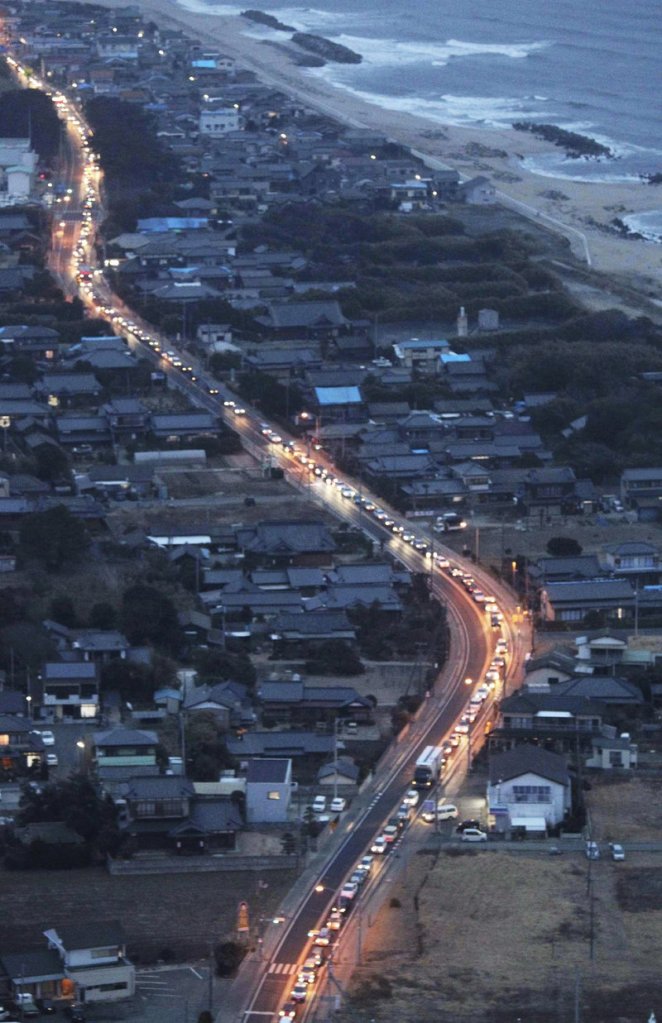SENDAI, Japan — To stay or go. To trust government reassurances or heed more alarmist warnings spread by Internet of radioactive clouds wafting over Tokyo. These are among the potentially life-altering questions being pondered by millions of Japanese in range of the crippled nuclear reactors at Fukushima.
Evacuation orders have been issued to residents within 20 miles of the nuclear complex, about 180,000 people, with the Japanese government insisting those further away are not at great risk. But with each fresh report of a fire or explosion at the stricken plant, people living beyond the evacuation zone, including some in Tokyo 100 miles to the south or in Sendai about 50 miles north, have already decided to depart.
“The first few days I wasn’t that worried about the nuclear situation, but now I’m getting worried. It’s more serious,” said Rotaro Sakai, a 24-year-old engineering student in Sendai, who queued up at 6 a.m. to snag a coveted bus ticket to Yamagata, to the northwest.
People seem to be basing their departure decisions on a combination of technical assessments and emotional tugs, leavened with a healthy dose of skepticism over government credibility.
They pore over weather reports, to determine which direction the wind is likely to blow. And they intently study diagrams of fuel rod cooling systems, weighing the staggeringly technical information against statements by authorities not to worry.
“It is difficult to make an objective decision,” said Masatoshi Onodera, a 67-year-old retiree from Sendai who was squinting at a complicated diagram of a containment vessel on the front page of a newspaper. “As far as what the government is telling us – well, I guess 80 to 90 percent of it is true.”
Within families, there are debates about what to do: Yumi Matsuya, a housewife from Sendai, says she doesn’t worry much about radiation, but her teenage daughters would like to leave.
“I’m scared,” confessed 16-year-old Haruka. “I worry about the effect on my body, about getting cancer later. And I don’t believe the government. I think they’re lying about something.”
Distrust for official information is a legacy of a long history of alleged lies and cover-ups by Tokyo Electric, the plant’s owner. The Japanese cabinet’s spokesman, Yukio Edano, is holding news conferences several times a day, on every occasion advising the Japanese public to “stay calm” – what might be the national mantra.”
We’re worried and the government attitude toward this accident has been very inadequate,” said Hitomi Yamashita, 40, a railway service desk worker employed in Sendai who grew up in Onagawa, about 15 miles closer to the wounded nuclear reactors. “They don’t tell us what we should do.”
Send questions/comments to the editors.



Success. Please wait for the page to reload. If the page does not reload within 5 seconds, please refresh the page.
Enter your email and password to access comments.
Hi, to comment on stories you must . This profile is in addition to your subscription and website login.
Already have a commenting profile? .
Invalid username/password.
Please check your email to confirm and complete your registration.
Only subscribers are eligible to post comments. Please subscribe or login first for digital access. Here’s why.
Use the form below to reset your password. When you've submitted your account email, we will send an email with a reset code.